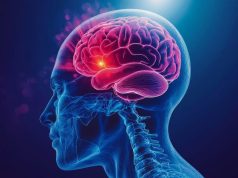Relative to those with dip in nighttime SBP, nondippers, reverse dippers have higher prevalence of cardiac autonomic neuropathy
WEDNESDAY, Sept. 30, 2021 (HealthDay News) — Increased blood pressure (BP) at night is associated with an increased risk for all-cause mortality in patients with diabetes, according to a study presented at the American Heart Association Hypertension 2021 Scientific Sessions, held virtually from Sept. 27 to 29.
Martina Chiriacò, M.D., from the University of Pisa in Italy, and colleagues examined a cohort of patients with type 2 or type 1 diabetes (284 and 65 patients, respectively) recruited in 1999 and followed for 21 years. All patients had 24-hour ambulatory BP and heart rate variability monitoring available. A ≥10 percent decrease, <10 percent decrease, and ≥0.1 percent increase in average nighttime systolic BP (SBP) compared with average daytime SBP was used to define dipping, nondipping, and reverse-dipping status, respectively.
The researchers found that there were 136 deaths (39 percent) after 6,251 person-years of follow-up. Relative to dippers (166 patients), nondippers (144 patients) and reverse dippers (39 patients) had a progressively higher prevalence of cardiac autonomic neuropathy (11, 16, and 31 percent, respectively), low heart rate variability (45, 53, and 62 percent), 24-hour hypertension (40, 60, and 67 percent), isolated nocturnal hypertension (5, 27, and 49 percent), and postural hypotension (14, 26, and 43 percent), as well as a lower prevalence of white-coat hypertension (31, 17, and 13 percent). Compared with dippers, nondippers and reverse dippers had progressively lower mean overall survival. After adjustment for confounding variables, reverse dippers also had an increased risk for all-cause mortality (hazard ratio, 2.3).
“It is important that health care professionals look for abnormal blood pressure dipping patterns in people with type 1 or type 2 diabetes,” Chiriacò said in a statement.
Copyright © 2021 HealthDay. All rights reserved.








